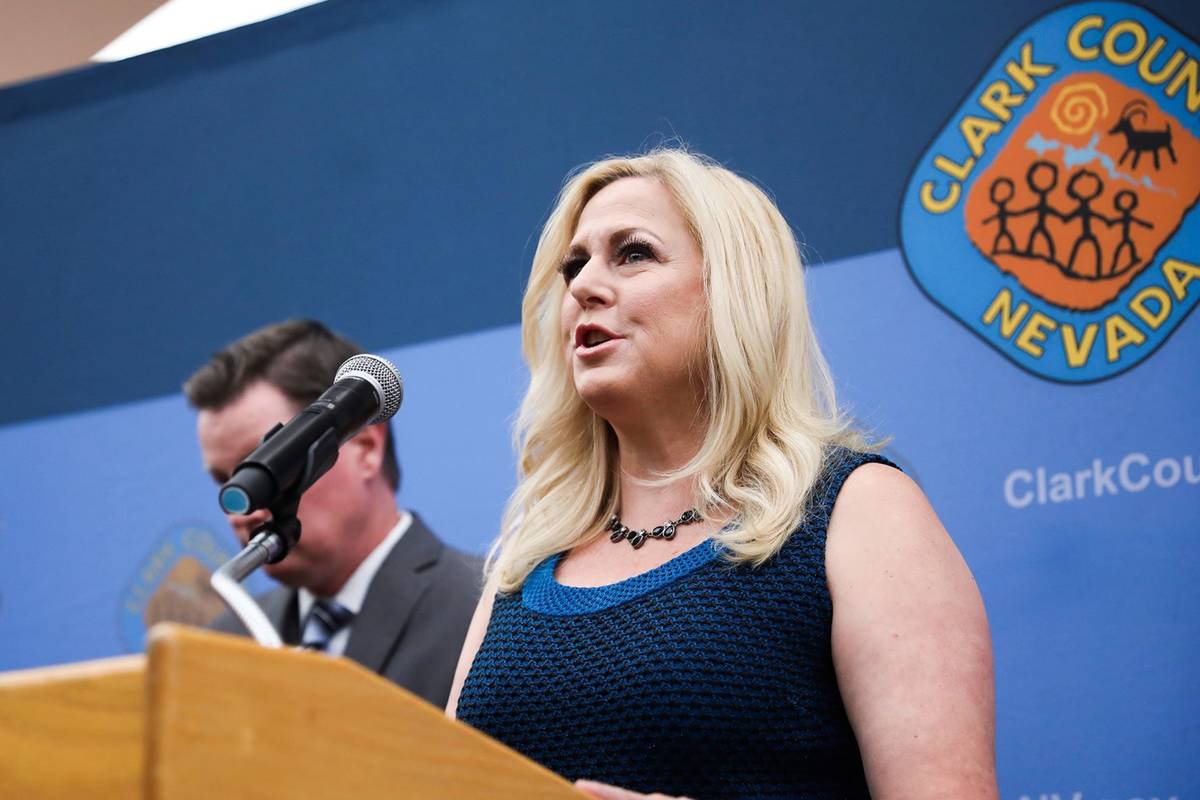How new eviction ban works in Nevada remains unclear
Nevada public officials have not yet confirmed whether the new federal eviction moratorium applies to renters living in counties eligible for the new protection, leaving some renters with a cloudy future.
The Centers for Disease Control and Prevention announced Tuesday it would extend its eviction moratorium until Oct. 3 for tenants who have been unable to pay their rent.
The protection only applies to counties with substantial or high rates of COVID-19 community transmission. As of Aug. 1, more than 80 percent of U.S. counties met the classification including all Nevada counties except Storey, Pershing, Lander, Eureka and Esmeralda.
But there is concern the federal eviction moratorium may not protect Nevadans because of the state’s recently passed Assembly Bill 486 as the bill offers several protections for renters facing an eviction.
Gov. Steve Sisolak’s office said this week it was expecting guidance from the CDC. During a Thursday news conference, Sisolak did not say if the moratorium applies in Nevada but noted AB486 is “what we’re working under and it provides a glide path” for renters facing eviction.
Las Vegas Justice Court Judge Melissa Saragosa said in a statement the court remains committed to helping landlords and renters navigate the rules and procedures to have their cases heard.
Despite the uncertainty, renters are being encouraged by tenants’ rights groups, landlords and legal experts to apply for rental assistance because both the CDC order and AB486 push tenants to first seek the aid.
Nevada Legal Services Director of Litigation David Olshan described the connection between the CDC order and AB486 as a Venn diagram.
“The CDC moratorium requires you to go after rent assistance, and AB486 basically says, if you’re going after rent assistance the landlord and the landlord tries to evict you, AB486 will protect you,” Olshan said. “So AB486 would, I think, cover 100 percent of the circumstances under the CDC moratorium.”
Case by case
Confusion over whether the CDC moratorium applies in Nevada stems from a recent order by Las Vegas Justice Court Hearing Master David Brown, who oversees a number of eviction cases.
His order said the eviction moratorium does not apply in Nevada because the state passed AB486 and it provides “the same or greater level of public health protection.”
One of the bill’s main protection is that a tenant with a pending rental assistance application can have the eviction stayed, or paused, until the application is processed.
The CDC’s 19-page order on Tuesday said its protection does not apply if a state or county has “a moratorium on residential evictions that provides the same or greater level of public-health protection” compared with its order.
Saragosa noted the CDC’s exception but said evictions would be looked at individually.
“Judges and hearing masters of the Las Vegas Justice Court will need to evaluate whether the protections afforded tenants in Assembly Bill 486 are the same or greater than those in the CDC order to determine the CDC order’s applicability,” she said. “Rulings like that are made independently by judges in cases and are not made in an en banc (full court) style.”
Attorney Terry Moore of Marquis Aurbach Coffing, who represents landlords with properties across the state, said that based on how the courts have been handling his cases after the passage of AB486, the eviction process probably won’t change significantly because of the new ban. “Every case is unique, to be quite honest, and there’s a lot of nuances to this,” he said.
Getting help
Renters unsure of whether they’re protected by the CDC eviction ban or AB486 should start by seeking rental aid, said Jim Berchtold, directing attorney of Legal Aid Center of Southern Nevada’s Consumer Rights Project.
He said the nonprofit encourages tenants apply for rental assistance and filing an answer with the court if they receive an eviction notice.
Berchtold also said tenants should sign a CDC declaration form, if they meet the requirements, and give it to their landlords, but he cautioned the CDC order may not fully protect them.
Olshan offered a similar point.
“The CDC moratorium is temporary,” he said. “Rent assistance is permanent. If you want security for your family, go after that rent assistance because that’s going to cover that unpaid rent and allow you to live in your dwelling a lot longer.”
Contact Subrina Hudson at shudson@reviewjournal.com or 702-383-0340. Follow @SubrinaH on Twitter.





























